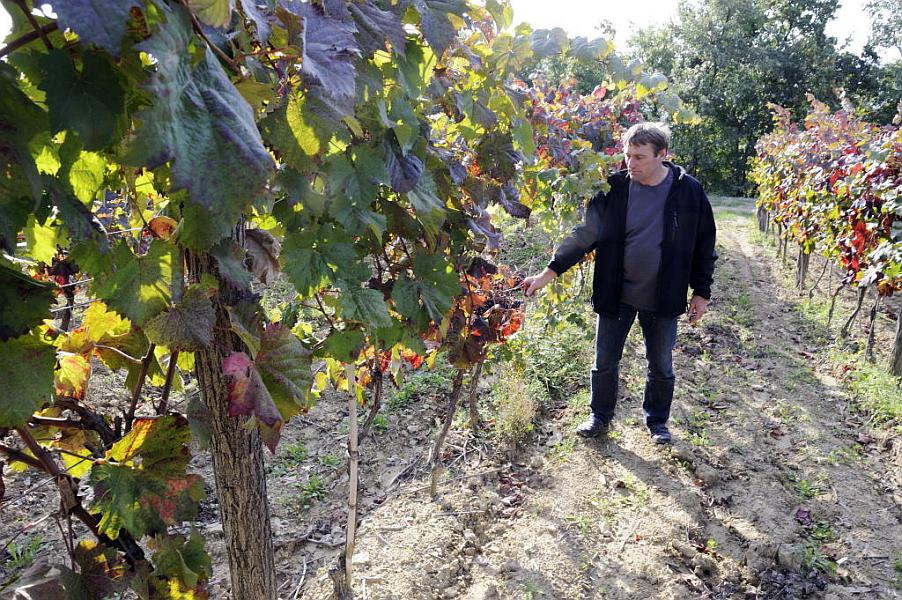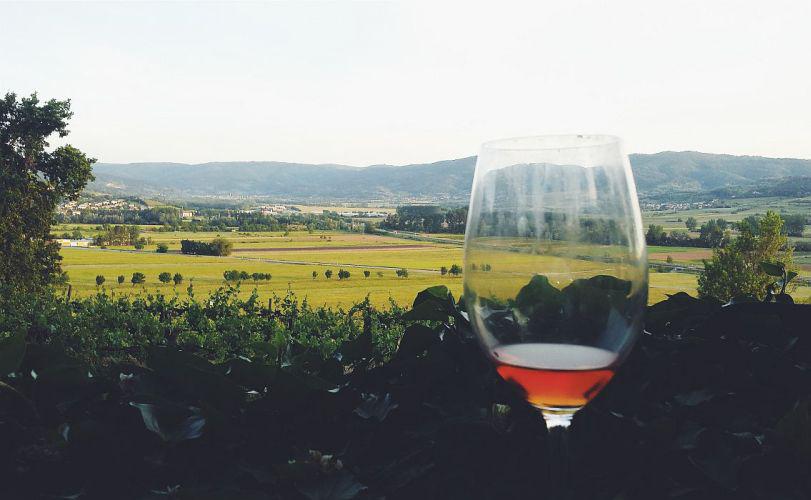Darrel Joseph is a wine journalist, judge and presenter specialising in the regions of Central and Eastern Europe. Based in Vienna, Darrel contributes to publications including Decanter and Harpers Wine & Spirit in Great Britain, Meininger's Wine Business International in Germany. He has also contributed to Wine Spectator and Hugh Johnson's Pocket Wine Guide. He judges for the Decanter World Wine Awards in London, conducts wine tastings and seminars internationally, and translates a wide range of wine texts from German to English.

Today, wine culture has an important role in Slovenian identity. We talked about Slovenian wine with Darrel Joseph, a wine journalist, judge and presenter specialising in the regions of Central and Eastern Europe.
Slovenians feel proud of the wines they produce and winemaking has a long tradition here. You know Slovenian wines very well, what inspires you most about them?
The most inspiring thing is how Slovenian wine established its modern-day identity within a relatively short period of time since the country became independent in 1991. The freshness and quality of the dry white wines in regions such as Goriška Brda and Vipava Valley as well as Štajerska are most impressive. And of course there are the 'natural' and 'orange' wine movements, for which Slovenia has been highly active and has gained international recognition.
What is your viewpoint on Slovenian wines from a global perspective? Which world markets have the most potential for wines from Slovenia?
Slovenian wines in general are surely good enough to compete on the international market in terms of quality. No doubt about it. And they are already in numerous countries abroad, such as the UK, Germany, the USA and of course, Slovenia's neighbouring countries. But the real issue is quantity. As Slovenia is a relatively small wine producing country, just around 22, 000 hectares of vineyards, there is only so much wine that can be produced. On top of that, most of the wine is drunk domestically. That means export volumes are limited. But that is o.k. Slovenia is a niche wine country, and that means the wines can be viewed as niche as well; special, individual, not 'commercial'. In terms of future markets to look out for, developing ones, like China for example, have positive potential.
Is it important to know the story behind the wine? How do you see Slovenian story?
This is a rather vague question, as I am not sure what the "Slovenian story" means. But in terms of its history, the wine culture in this area has existed since Celtic and Illyrian times - hundreds of years BC. The fact that it has survived all of these centuries is incredible - especially during the 20th century with the wars and the period when Slovenia was a part of Yugoslavia and wine was produced en masse and not for quality. Even better, it has entered a remarkable new era of identity via the talent, innovation and ambition of today's Slovenian winemakers, who have combined local tradition and know-how with learning from their more established (in terms of modern production) wine neighbours, Italy and Austria. The wines, especially the white wines, are lovely to drink on their own or also with food.
What do you think about Cviček, Metliška črnina and Belokranjec (the protected wines)?
These two easy-drinking blend wines - the red Metliška črnina, and the Cviček (white and red blend!) – are very traditional local wines that have been gaining in popularity. I am still getting to know them a bit – but I would say that, while they are not complex, they have a nice easy character for pleasurable drinking. I want to explore these wines more, and see what winemakers will be doing with them in the future.
What is your choice of top 5 picks from Slovenia?
It is hard for me to give my top five picks because that would leave out too many interesting and delicious wines. But I can say that some of my favourite producers include Batič, Kabaj, Edi Simčič, Marjan Simčič, Movia, Ščurek, Dveri-Pax, Ptujska Klet and Marof. It is also good to look out for not only the international grape varieties like Sauvignon Blanc from the Štajerska region, but also the indigenous grapes, like Pinela and Zelen in the Vipava Valley. And there is also Rebula, which is found in Brda and over the border, in Italy's Friuli.
Polona Prešeren, SINFO
Darrel Joseph is a wine journalist, judge and presenter specialising in the regions of Central and Eastern Europe. Based in Vienna, Darrel contributes to publications including Decanter and Harpers Wine & Spirit in Great Britain, Meininger's Wine Business International in Germany. He has also contributed to Wine Spectator and Hugh Johnson's Pocket Wine Guide. He judges for the Decanter World Wine Awards in London, conducts wine tastings and seminars internationally, and translates a wide range of wine texts from German to English.


































































